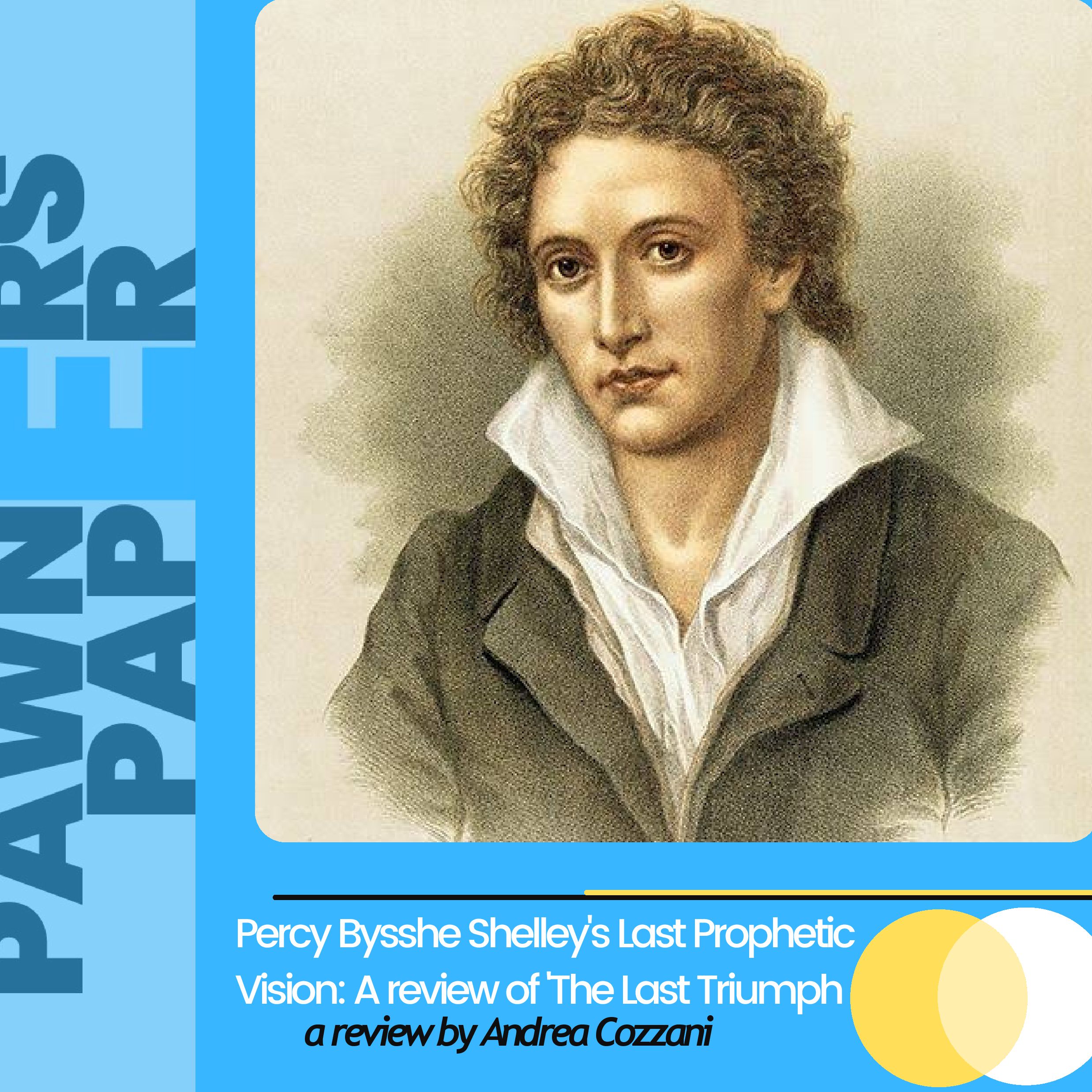In Shelley's 'Triumph of Life', the sensation of a continuous and inexorable trip in a distant, dreamy labyrinth catches us every moment in every line
"...Shelley is the only modern poet whose verses uniformly appear to be inspired; no other poet of ancient times is so completely and universally under the influence of inspiration..."
—T.J. Hogg, London 1818
In Shelley's 'Triumph of Life', the sensation of a continuous and inexorable trip in a distant, dreamy labyrinth catches us every moment in every line of the poem. Words themselves are waves that come and go, casting against the cliff of reason, of clearness, of harmony. In the poem, there is the disorder of billows that caused Shelley's death, the violent power of the stormy sea, as if the poet himself were on the point of crossing the extreme threshold in order to find out the last high mystery, but there is also the tranquil restoration brought by the calm sea, the sensation of isolation caused by the oblivious witchery of sweet floating (the poem was partly written sailing with the schooner "Ariel" in the bay of Lerici).
The Triumph of Life, in the whole of its powerful ecstatic dimension, represents an example of a poetical itinerary in the oneiric world traveled over again on the ground of imaginative experiences that seem to enlighten Shelley's mind as many different shapes, causing impressions to relive in the unconscious just at the moment of remembrance.
In the title itself, there is a clear contrast between the celebration of life after death through forms of art perfectible, nevertheless imperfect, as lyric poetry, and the consciousness of a short-lived existence in which the presence of some dark and disquieting powers can be noticed.
Life triumphs in every sphere of human action; its destroying force is put in front of the reader in the shape of a powerful Car and a macabre hooded figure hanging over it. The atmosphere is almost apocalyptic: Shelley, poet and spectator at the same time, witnesses an absurd ritual in which multitudes are dancing and singing wildly around the car of life. The history of mankind, with its heroes and its losers, becomes a caotic whole of shapes and sounds, a river that flows towards an inexistent mouth, a crowd without face bewitched by echoes of tribal rhythms, all gazed into an ineluctable fate.
The Triumph of Life is, in this way, a celebration of mankind in all his historical journey, a commemoration of ancient splendors but also an assertion of the power of life on human nature: the poem confirms to the poet and the reader that every event is transitory and all landmarks are not strong enough to fight against the race of time. Culture, history, and even poetic faith are all the same in the blinding light of this "inhuman" vision. The lines of the Triumph, as waters that forever flow and reflow in a riverbed, express a succession of questions and answers, of whisperings and screams, of solitudes and moltitudes that come and go as natural changes, as the cycle of the seasons, and the music that seems to accompany these alternations, making comments on their development, is a whole of harmonic chords that in an opera fully confirms the theatrical realization of the scene.
"I have seen
hours dreadful, and things strange, but this sore night
hath trifled former knowings..."
—William Shakespeare, Macbeth
About The Writer
Andrea is a 55-year-old teacher, living and working in Italy where history and art have found their perfect cradle.
He has a degree in foreign languages and literature and has changed many jobs in his life, including salesman, commercial manager, company trainer and teacher of English to hundreds of young students and adults.
Italy is where the poet Shelley and his wonderful wife Mary spent their last years together before the young poet died in a storm on his boat, Ariel.
Andrea sailed to the places visited by Shelley, experienced them on his small boat, and also traveled to Horsham (UK) where the poet grew up.
He now resides in north-eastern Italy in a small region called Friuli Venezia Giulia, not far from the most beautiful city in the world called Venice, the city on water, the living work of art where the sea and God meet.



.png)
%20(1).jpeg)

%20(3).jpeg)

COMMENTS